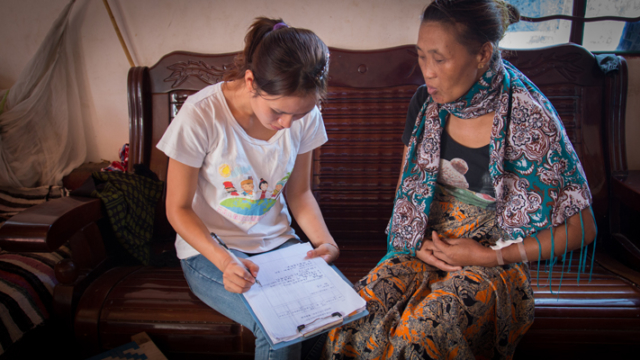Mei Liang is a woman with a mission. Barely in her 20s, this college graduate has ventured off the beaten path on a journey that not many modern-day youth would opt for.
Two years ago, Mei completed her education and returned home to Mang Ling village in Yunnan Province, choosing to work as a social worker taking care of children.
“I didn’t really understand what the job was at the beginning,” she said, recounting the struggles of the early days.
She said perhaps the most difficult part of her job has been to establish a rapport with the children and understand their needs.
“All the children and families that I help face different issues. Some are poor, some are unwell, some belong to single-parent homes and some are orphans. I need to visit them at least once a month to make sure they are good,” she said, as we journey to visit one of the families.
Listening to her, it is clear that the job requires a deep emotional investment, one that is key to developing an intimate bond with the children, allowing them to connect and share with her.
Such is the impact of their effort, that workers like Mei are hailed as China’s “barefoot social workers.” The name draws from the “barefoot doctors” initiative of the last century, which helped expand basic healthcare to the country’s rural population.
Starting from May 2010, many of these social workers received a big boost after the Chinese government and the United Nations Children’s Fund (UNICEF) launched a joint project on China’s Child Welfare.
Under the project, such barefoot social workers would be taking care of 525,000 orphaned children.
Since the project was launched, nearly 20,000 children in need, such as those facing poverty or disability, have been offered support in the way of medical care and living subsidies.
Mei is among those social workers whose work has been aided by the joint China-UNICEF project.
What she is hoping for now is that the successes that have been achieved get communicated well, so that those in need can realize that they have someone to reach out to.
“I hope my work can be known by others; then families that need help can come to me. It will make it easier for me to go to these families if I’m not a stranger,” she explains.
 But what are her desires? What is it that she wishes from life for herself?
But what are her desires? What is it that she wishes from life for herself?
Questions like these are almost always met by a stoic response. “I hope my work can help more and more children,” says Mei with a twinkle in her eyes.

Share your stories of change in China @CCTVNEWS or via colors@cctvnews.cn.
 CGTN America
CGTN America





